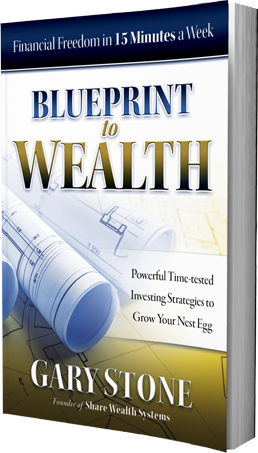
The 3 Biggest Mistakes People Make Saving For Retirement
Gary Stone is the author of Blueprint to Wealth: Financial Freedom in 15 Minutes a Week and this week we spoke to Gary on the FiftyUp Club Radio show about the Top 3 Mistakes People Make When Saving For Retirement.
Gary says “saving for retirement is a multi-decade investing venture, even for those approaching retirement. Indeed, actuaries in 2015 stated that there is a 70% chance that one of a 65-year-old couple will reach 90 years old, meaning that even retirement is a multi-decade investing proposition.”
Many in the Fifty Up Club will have children who are still in the early stages of accumulating their retirement nest egg. Bear them in mind when reading this article. According to Gary's book, here are the Top 3 Mistakes People Make....
Mistake 1 – investing in diversified balanced funds over the long term
When starting a new job, employees need to choose where their monthly Superannuation contributions will be invested by their new employer. New employees are typically faced with a confusing list of managed funds from which to select. These new employees of all age groups typically tick a box on a form having spent less time thinking about where to invest their retirement contributions than they would spend choosing a meal off an à la carte menu.
Deciding where and how to invest their retirement savings is the biggest financial decision that individuals will make in the sense that the wrong choice can cost everyday people more in lost savings than any other financial decisions they will ever make.
It is just far too important not to put more effort into their retirement investing decision.
The typical outcome of this poor decision is that 70% to 75% of retirement savers will defer to the social default which is choosing a more cautious balanced or diversified fund of some sort in an industry or retail Super fund. This is a big mistake. Because over-caution equals under-performance over the long term. The younger the new employee the bigger this mistake. Over the long term this mistake will cost the retirement saver multiple hundreds of thousands of dollars in forfeited retirement savings compared to electing to invest their retirement savings in a mainstream stock market index Exchange Traded Fund (ETF).
Mistake 2 – Falling for the fee-loving financial establishment
Workers allow themselves to be fee-fleeced by active fund managers such as industry Super Funds. Fees contribute to the 2.6% p.a. difference referred to in Mistake 1. Industry Super funds’ annual fees are in the order of double to seven times higher than index Exchange Traded Funds (ETFs).
As John Bogle, the founder of Vanguard, so aptly put it, “… the magic of compound returns is overwhelmed by the tyranny of compound costs.”
In the case of People vs fee-loving financial establishment, the people are losing hands down.
Mistake 3 – Succumbing to ongoing hide & seek fees
Mistake number three is paying financial planners and advisers ongoing annual fees as a percentage of funds under management. Adviser fees can range from 0.5% p.a. to 2% p.a. of a client’s funds being managed by the adviser. These fees are in addition to management fees charged by the managed funds in which advisers may invest their clients’ money.
A fee that is calculated as a percentage of a client’s wealth continues to scale higher in absolute terms as the client’s wealth rises in value.
Adviser fees or most of managed Super fund fees¸ potentially costing hundreds of thousands of dollars in forfeited growth over multiple decades, can almost be completely avoided by individuals gaining their own knowledge about index investing themselves using ETFs. Give fees the flick, start your own fee avoidance movement.
Any information contained in this article is of a general nature only, that is it does not take into account your own particular circumstances and needs, either now or in the future. If in doubt about your personal situation or needs you should seek financial advice.
Click through to Gary's website here


